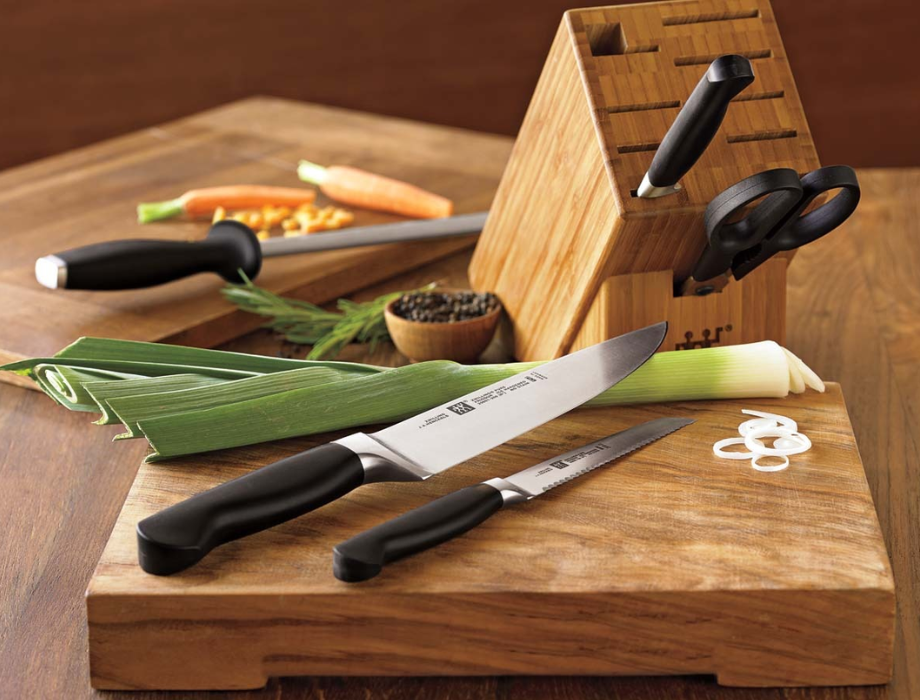The cutlery manual
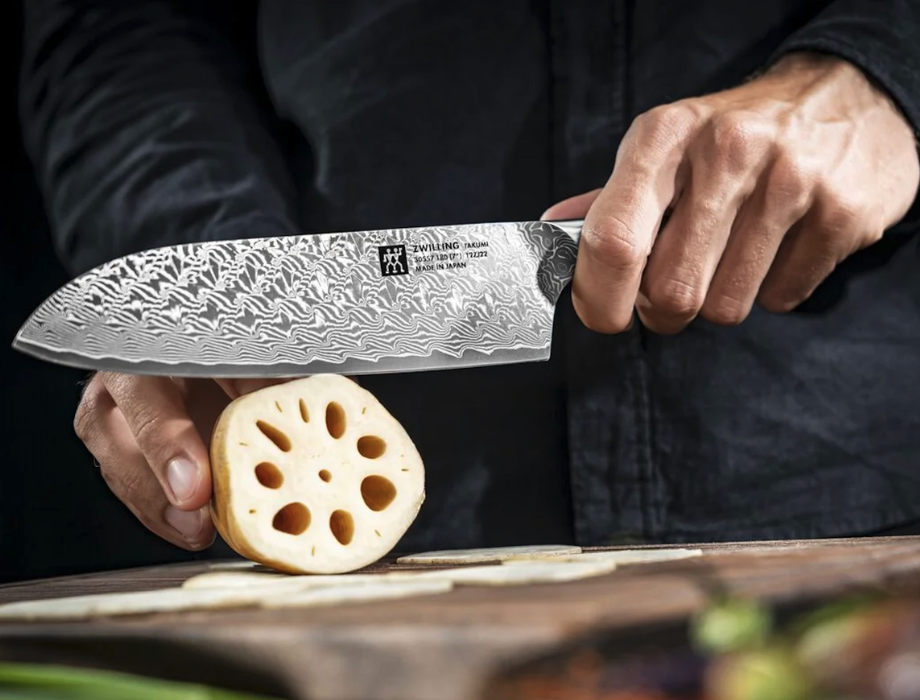
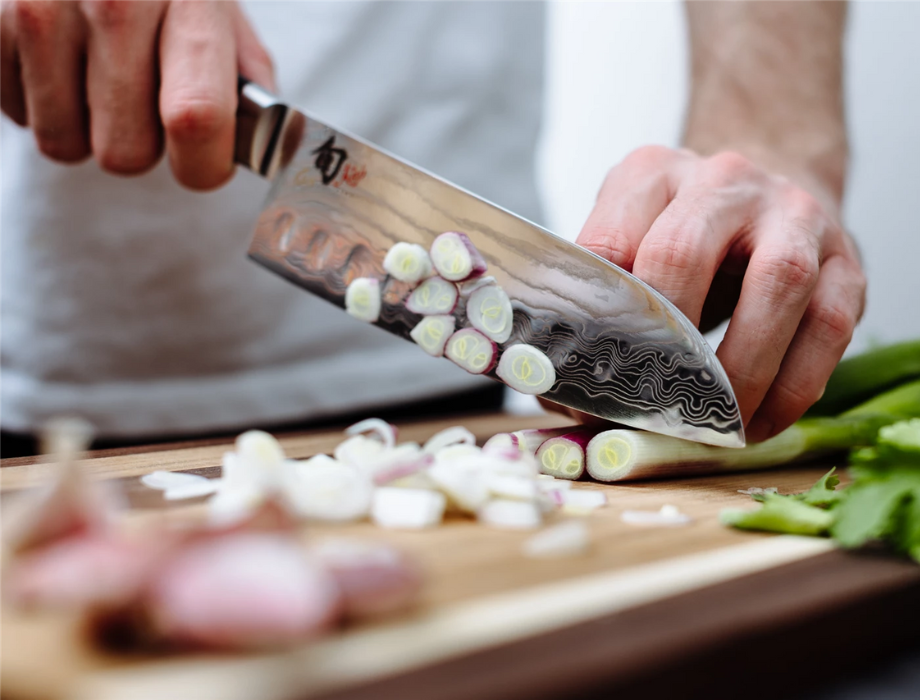
Japanese Knives: Guide to the different types of knives and their uses
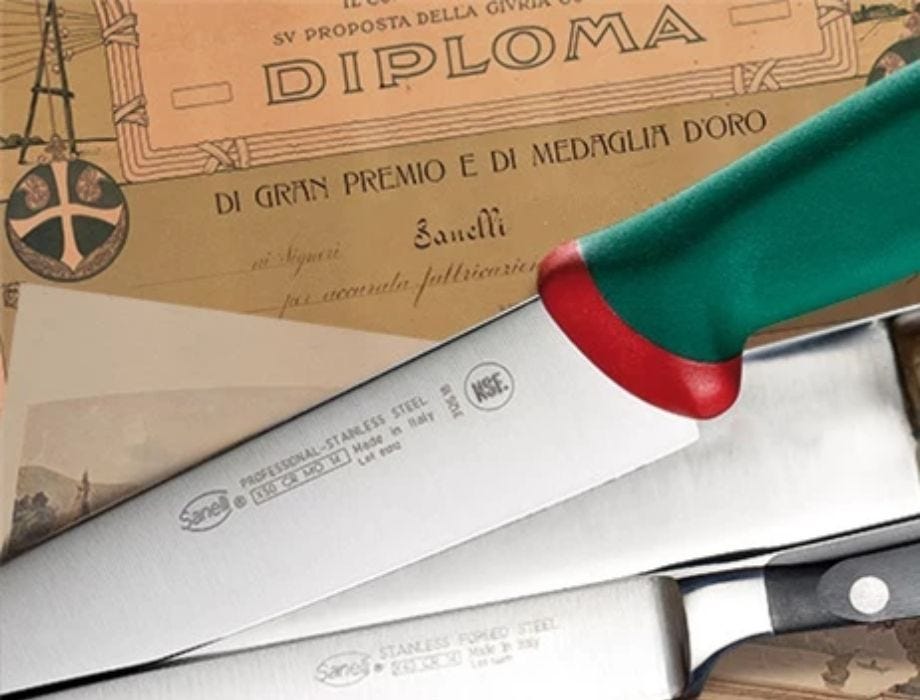
Sanelli knives: buying guide.
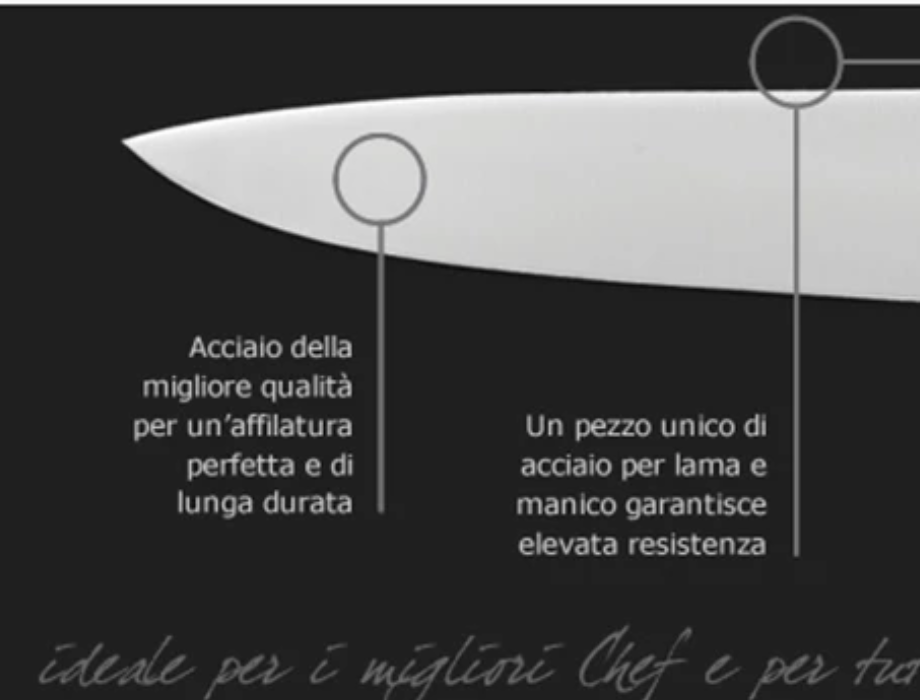
Create your own set of professional knives for less than 139 euros

Santoku knife: use and guide to choosing

Have you ever heard of a Santoku knife ? You must know that the kitchens of professionals but also of many amateurs are characterized by the presence of this really interesting kitchen knife which plays a precise role in one or more dishes.
In the following lines, we have chosen to show you what the Santoku knife is for , what its characteristics are and what its most common uses are. In addition, you will discover the best santoku knives at your disposal that the market currently offers.
WHAT IS THE SANTOKU KNIFE
The Santoku knife is one of the most important accessories in the kitchen. It is defined by many as a handyman knife as it can be used for cutting meat, fish and vegetables .
The term Santoku means " the three virtues ", it is a knife originating from Japan. In recent years , oriental cuisine has also spread to our country, bringing with it not only delicious dishes, but also very practical kitchen utensils for preparing, cutting and cooking different foods.
This Japanese knife features a broad, fine blade and a handle that is flush with the top of the blade. It is a particularly practical, professional and versatile tool, which has become popular in the kitchens of great chefs and then also borrowed from amateur cooks.

The Santoku knife also provides for the presence of alveoli on the blade. In a nutshell, the Santoku has a hollow edge made with vertical and equidistant indentations, inside which there are small pockets of air between the blade and the food. In this manner, the air pockets gently push the food off the blade and help reduce friction and resistance, producing clean, even cuts and minimizing food sticking to the blade.
USE OF SANTOKU IN THE COOKING
As anticipated, the uses of a Santoku knife are very varied. Overall, we can deem it to all intents and purposes as a utility knife that is perfect for slicing, dicing, mincing and finely dicing . In fact, it is often associated with our chef's knife.

This versatility also translates into the foods it can cut as it makes no distinction between fish, meat, fruit and vegetables. Why should it never be missing in your kitchen?
The most important reason why Santoku should be in any kitchen is due to its extreme versatility . Overall, it's a very simple knife to use, it's light and suitable for any type of chef , even for beginners.
THE BEST SANTOKU KNIVES
BEST EUROPEAN SANTOKU KNIVES
Discover below the best Santoku Knives that you can buy on our site.
{comparative:401}
BEST SANTOKU KNIVES OF JAPANESE ORIGIN

If you want a professional Santoku knife, at a higher price but with high quality, discover the best santoku knives of Japanese origin.
{comparative:402}
DISCOVER ALL OUR SANTOKU KNIVES
SANTOKU KNIFE MAINTENANCE
Now that you understand what a Santoku knife is, it is also important to understand what maintenance initiatives you will need to use in order for this kitchen tool to last as long as possible.
In any case, the Japanese Santoku is a long lasting knife if subjected to proper cleaning, sharpening and storage. In particular, we suggest that you wash it by hand and dry it with a soft, clean cloth.
Furthermore, in general, we do not recommend washing Santoku in the dishwasher or using scourers. These alternatives, in fact, could invalidate the sharpening of the instrument and ruin its precious steel.
The sharpening of the Santoku is also a fundamental aspect to take into account so that the knife in question guarantees the duration you expect from an accessory of this type. Many experts recommend proceeding with the sharpening of the Santoku of Japanese origin through the use of the thread of Japanese stones . Instead, for European-made knives, our suggestion is to turn to oval-shaped sharpeners .
{comparative:421}

